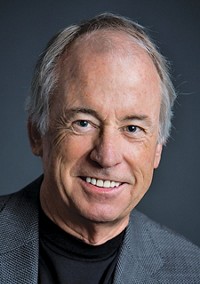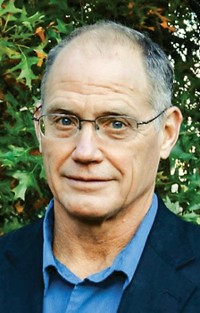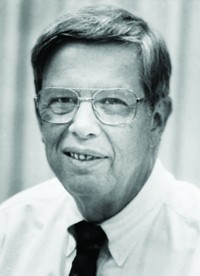Advertisement
Grab your lab coat. Let's get started
Welcome!
Welcome!
Create an account below to get 6 C&EN articles per month, receive newsletters and more - all free.
It seems this is your first time logging in online. Please enter the following information to continue.
As an ACS member you automatically get access to this site. All we need is few more details to create your reading experience.
Not you? Sign in with a different account.
Not you? Sign in with a different account.
ERROR 1
ERROR 1
ERROR 2
ERROR 2
ERROR 2
ERROR 2
ERROR 2
Password and Confirm password must match.
If you have an ACS member number, please enter it here so we can link this account to your membership. (optional)
ERROR 2
ACS values your privacy. By submitting your information, you are gaining access to C&EN and subscribing to our weekly newsletter. We use the information you provide to make your reading experience better, and we will never sell your data to third party members.
Synthesis
James A. Marshall
February 12, 2007
| A version of this story appeared in
Volume 85, Issue 7
James A. Marshall is being honored for his long-standing work in synthetic organic and organometallic chemistry during the past 40 years. In particular, he and his students have introduced and pioneered a wide range of new synthetic reagents and methods for the asymmetric synthesis of complex natural products.
He previously received another ACS award in the natural-products field: the Ernest Guenther Award in the Chemistry of Essential Oils & Related Products, in 1979. Since then, one colleague says, he and his group "have completed a number of highly impressive and elegant total syntheses using many of the novel new chiral allyl- and allenylmetal reagents that have been developed" by his group between 1979 and 2006.
Since the 1979 award, the colleague notes, Marshall has published 213 research papers on a variety of complex organic molecules. Organic synthesis has dominated his efforts since he received a B.S. degree from the University of Wisconsin in 1957, and a Ph.D. in 1960 from the University of Michigan. He then held a postdoctoral fellowship at Stanford University from 1960 to 1962.
Synthetic organic chemistry took center stage for Marshall when he began his research career as an assistant professor in 1962 at Northwestern University. He was named a full professor there in 1968. While at Northwestern, he and coworker R. H. Ellison achieved the total synthesis of the pseudoguaianolide (+)-confertin. This synthesis was the first to address the problems of total stereocontrol in the flexible hydroazulene ring system of these highly functionalized carbocycles.
His synthesis work at Northwestern also spurred structure revisions of the sesquiterpene β-vetivone and several of its congeners, which had played a key role in the classic structure determination of the nonbenzenoid aromatic compounds known as azulenes.
Marshall moved to the University of South Carolina in 1980, and he was named Guy Lipscomb Professor there in 1983. In 1995, he accepted an appointment as Thomas Jefferson Professor at the University of Virginia. At these two universities, his research interests expanded to include complex polyketide natural product total synthesis and organometallic chemistry.
Recently, Marshall has made what one colleague terms "landmark contributions" to synthetic organic chemistry through the application of new chiral allylic, allenic, and propargylic organometallic reagents—derived from tin, indium, zinc, and palladium—to the stereocontrolled asymmetric total synthesis of highly complex polyketides.
His chiral γ-oxygenated allylmetal methodology can be used to create difficult arrangements of contiguous hydroxy stereocenters in a wide range of polyol and amino-polyol structures, to provide convenient access to many rare sugars inaccessible by past technologies.
In recent years, one observer points out, Marshall and his group have published noteworthy examples of their new O-directed, Pd-mediated hydrostannation reaction for creating trisubstituted vinylstannanes with high levels of regio- and stereospecificity. This work is of great use to the organic chemistry community as there are not many good methods available for making such stannanes.
Over the course of his academic career, Marshall has served on a variety of government councils and editorial boards. He has also served as a consultant to various chemical and pharmaceutical companies, including Merck, Givaudan, Midwest Research Institute, Ortho Pharmaceuticals, Ciba-Geigy, and Hoffmann-LaRoche.
He was elected a fellow of the American Association for the Advancement of Science in 1980, and he chaired the Gordon Research Conference on Stereochemistry in 1990. While in South Carolina, in 1993, he received both the Governor's Award for Excellence in Science and the Outstanding Chemist Award from the South Carolina Section of ACS. The Royal Society of Chemistry has recently honored his contributions to organic synthesis with a Centenary Lectureship and Medal for 2007.






Join the conversation
Contact the reporter
Submit a Letter to the Editor for publication
Engage with us on Twitter